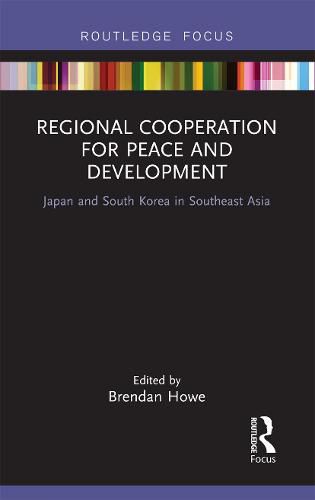Readings Newsletter
Become a Readings Member to make your shopping experience even easier.
Sign in or sign up for free!
You’re not far away from qualifying for FREE standard shipping within Australia
You’ve qualified for FREE standard shipping within Australia
The cart is loading…






Faced with significant security challenges, in recent years Japan and South Korea have both sought to raise their international profile through peacebuilding, development, humanitarian assistance, and human security. This book assesses the past, present, and future potential of these niche diplomacy initiatives undertaken by Japan and South Korea, largely in Southeast Asia. The book concludes that not only do such nontraditional security channels have the potential to achieve meaningful change for partners and beneficiaries, but they could also form the basis of future confidence-building and security cooperation between Japan and South Korea, which have to date achieved little in the field of traditional security cooperation, despite facing many shared challenges.
Working across disciplines and national boundaries, the contributors to this volume argue that policy prioritization in the fields of peacebuilding, development, and human security by Tokyo and Seoul could have the potential to accrue wider benefits not only to the Northeast Asian actors and the Southeast Asian partners, but also to wider regional and even global security communities. At a time when the role of so-called middle powers is receiving increasing levels of attention both domestically and internationally, this book will be of considerable interest to scholars of Japan and the ROK, as well as development, security, and foreign policy researchers more broadly.
$9.00 standard shipping within Australia
FREE standard shipping within Australia for orders over $100.00
Express & International shipping calculated at checkout
Faced with significant security challenges, in recent years Japan and South Korea have both sought to raise their international profile through peacebuilding, development, humanitarian assistance, and human security. This book assesses the past, present, and future potential of these niche diplomacy initiatives undertaken by Japan and South Korea, largely in Southeast Asia. The book concludes that not only do such nontraditional security channels have the potential to achieve meaningful change for partners and beneficiaries, but they could also form the basis of future confidence-building and security cooperation between Japan and South Korea, which have to date achieved little in the field of traditional security cooperation, despite facing many shared challenges.
Working across disciplines and national boundaries, the contributors to this volume argue that policy prioritization in the fields of peacebuilding, development, and human security by Tokyo and Seoul could have the potential to accrue wider benefits not only to the Northeast Asian actors and the Southeast Asian partners, but also to wider regional and even global security communities. At a time when the role of so-called middle powers is receiving increasing levels of attention both domestically and internationally, this book will be of considerable interest to scholars of Japan and the ROK, as well as development, security, and foreign policy researchers more broadly.